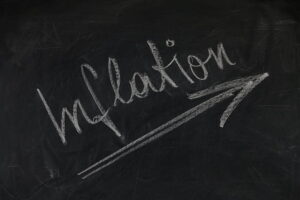The report forecasts global growth to slow from 6.0 per cent in 2021 to 3.2 per cent in 2022 and 2.7 per cent in 2023. This is the weakest growth profile since 2001 except for the global financial crisis and the acute phase of the COVID-19 pandemic.
The latest edition of International Monetary Fund’s World Economic Outlook released on Tuesday raises the curtains for a contraction of the world economy by next year. Citing that the global economy is experiencing a number of turbulent challenges, the Fund cut its global growth forecast for 2023 citing the ongoing war in Ukraine, the lingering COVID-19 pandemic and inflation, particularly the rising prices of food and energy.
Helmed on ‘Inflation and uncertainty’, IMF’s World Economic Outlook report released on Tuesday themed on ‘Countering the Cost-of-Living Crisis’
It says that global economic activity is experiencing a broad-based and sharper-than-expected slowdown, with inflation higher than seen in several decades.
“The cost-of-living crisis, tightening financial conditions in most regions, Russia’s invasion of Ukraine, and the lingering COVID-19 pandemic all weigh heavily on the outlook.”

Rising inflation
According to IMF the global growth is forecast to slow from 6.0 per cent in 2021 to 3.2 per cent in 2022 and 2.7 per cent in 2023. “This is the weakest growth profile since 2001 except for the global financial crisis and the acute phase of the COVID-19 pandemic and reflects significant slowdowns for the largest economies: a US GDP contraction in the first half of 2022, a euro area contraction in the second half of 2022, and prolonged COVID-19 outbreaks and lockdowns in China with a growing property sector crisis.”
About a third of the world economy faces two consecutive quarters of negative growth, according to the Fund. Global inflation is forecast to rise from 4.7 per cent in 2021 to 8.8 percent in 2022; but to decline to 6.5 per cent in 2023 and to 4.1 per cent by 2024.
Risks to the outlook remain unusually large and to the downside, the report says. Monetary policy could miscalculate the right stance to reduce inflation. It sees a further appreciation of the US dollar. On COVID-19, it fears a resurgence of the pandemic or new global health scares might further stunt growth.
Protect vulnerable groups
A worsening of China’s property sector crisis could spill over to the domestic banking sector and weigh heavily on the country’s growth, with negative cross-border effects, it says, adding that geopolitical fragmentation could impede trade and capital flows, further hindering climate policy cooperation. “The balance of risks is tilted firmly to the downside, with about a 25 per cent chance of one-year-ahead global growth falling below 2.0 per cent — in the 10th percentile of global growth outturns since 1970.”
The report says that “front-loaded and aggressive monetary tightening is critical to avoid inflation de-anchoring as a result of households and businesses basing their wage and price expectations on their recent inflation experience.”
Fiscal policy’s priority is the protection of vulnerable groups through targeted near-term support to alleviate the burden of the cost of-living crisis felt across the globe, the Fund says.

